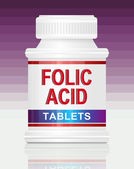What Does This Study Mean For You?
Author: Dr. Stephen Chaney
 A recent meta-analysis (AA Bernasconi et al, Mayo Clinic Proceedings, 96: 1365-1375, 2021) of randomized clinical studies with over 150,000 patients showed that omega-3s reduced the risk of heart attacks by 13% and fatal heart attacks by 35%. Another major clinical study (T Chao et al, Nutrition, Metabolism and Cardiovascular Disease, 34: 537-547, 2024) with 30,000 patients found that omega-3s reduced all-cause mortality by 10%, cardiovascular mortality by 18%, heart attacks by 33%, and sudden cardiac death by 33%.
A recent meta-analysis (AA Bernasconi et al, Mayo Clinic Proceedings, 96: 1365-1375, 2021) of randomized clinical studies with over 150,000 patients showed that omega-3s reduced the risk of heart attacks by 13% and fatal heart attacks by 35%. Another major clinical study (T Chao et al, Nutrition, Metabolism and Cardiovascular Disease, 34: 537-547, 2024) with 30,000 patients found that omega-3s reduced all-cause mortality by 10%, cardiovascular mortality by 18%, heart attacks by 33%, and sudden cardiac death by 33%.
In short, the evidence that omega-3s reduce the risk of heart attacks and other forms of cardiovascular disease keeps getting stronger. However, the effect of omega-3s on heart failure is not as clear. Some studies suggest that omega-3s reduce the risk of heart failure and heart failure deaths. But other studies find little or no effect.
That’s unfortunate because heart failure is responsible for 45% of cardiovascular deaths and 14% of all deaths in the United States. In 2023 6.7 million Americans had heart failure, and that number is expected to increase to 8.5 million in 2030.
But numbers don’t tell the whole story. It is the trend in heart failure deaths that is truly concerning. Heart failure deaths per 100,000 Americans decreased by 20% between 1999 and 2012. Then the trend abruptly reversed. By 2021 heart failure deaths per 100,000 people was greater than in 1999. And the increase in heart failure deaths shows no signs of slowing down.
Nobody knows what is causing this rapid increase in heart failure deaths. But clearly the miracles of modern medicine are not working. And because the clinical studies on omega-3s and heart failure risk have been confusing, omega-3s are not currently recommended for heart failure patients.
This study (M A Jawad et al, Mayo Clinic Proceedings, 99: 1895-1904, 2024) was designed to clear up the confusion about omega-3s and heart failure risk.
How Was This Study Done?
 This utilized data from the UK Biobank study. The UK Biobank study is an ongoing study that enrolled 502,366 subjects, aged 40-69, from the United Kingdom between April 1, 2007, and December 31, 2010. It regularly collects environmental, lifestyle, and genetic data on these individuals and tracks their health outcomes.
This utilized data from the UK Biobank study. The UK Biobank study is an ongoing study that enrolled 502,366 subjects, aged 40-69, from the United Kingdom between April 1, 2007, and December 31, 2010. It regularly collects environmental, lifestyle, and genetic data on these individuals and tracks their health outcomes.
Within the study 273,033 participants had their blood levels of omega-3s determined by mass spectrometry. These measurements were used to calculate the Omega-3 Index (% of membrane fatty acids that are omega-3s) of these participants.
Of these participants:
- 271,794 did not have a heart failure diagnosis at the time the omega-3 levels were determined. This group was used to evaluate the effect of omega-3s on the risk of developing heart failure.
- 1,239 had a heart failure diagnosis at the time the omega-3 levels were determined. This group was used to determine whether omega-3s reduced the risk of death in heart failure patients.
- 20,000 from this group had a repeat measurement of omega-3 levels around 4 years after the first measurement to determine the consistency of omega-3 levels. On average the repeat measurements were slightly lower, but the differences were small.
These participants were followed for an average of 13.7 years.
- A diagnosis of heart failure was based on international diagnosis standards.
- Deaths were identified by using the central death registry in the United Kingdom.
The News About Omega-3s Just Got Better
 The data were clear. When participants with an Omega-3 Index in the top 20% were compared to those with an Omega-3 Index in the bottom 20%:
The data were clear. When participants with an Omega-3 Index in the top 20% were compared to those with an Omega-3 Index in the bottom 20%:
- The risk of developing heart failure during the 13.7-year follow-up period was reduced by 21%.
When participants with a heart failure diagnosis prior to omega-3 measurement were compared in the same manner:
- All-cause mortality was reduced by 48%
- Cardiovascular mortality was reduced by 43%.
When the investigators looked at the effect of omega-3 supplementation in this population:
- The risk of developing heart failure was 5% lower for those who reported omega-3 supplement use. I will discuss the reason for the discrepancy between comparisons based on omega-3 supplement use and comparisons based on blood levels of omega-3s below.
The authors concluded, “Higher plasma levels of marine omega-3 fatty acids were associated with a lower incidence of heart failure. Furthermore, among patients with preexisting heart failure, higher omega-3 levels were associated with lower risks of all-cause mortality and cardiovascular mortality. These findings suggest that increasing plasma omega-3 levels, whether by diet or supplementation, could reduce both risk for development of heart failure and death in those with prevalent heart failure.”
What Are The Strengths And Weaknesses Of This Study?
 This was a very large, very well-done study. There is the usual caveat for this type of study, namely that it looks at associations and cannot prove cause and effect. However, it would be impossible to perform a double blind, placebo-controlled study with that many people for almost 14 years.
This was a very large, very well-done study. There is the usual caveat for this type of study, namely that it looks at associations and cannot prove cause and effect. However, it would be impossible to perform a double blind, placebo-controlled study with that many people for almost 14 years.
And heart failure does not happen overnight. Studies of the size and length are required to show meaningful effects of diet and/or supplementation on health outcomes like heart failure are not feasible.
Another major strength of this study is that it measured blood levels of omega-3s and showed those blood levels were relatively stable over time rather than relying on participants remembering what they ate and/or what supplements they used.
- In terms of supplement use, studies like this one simply ask whether omega-3 supplements were used. They do not ask what the dose was, how frequently they were taken, the form of the omega-3 supplement (fish oil, EPA-only, DHA-only), and whether they were consumed with food or not (which affects absorption).
- Studies that rely on diet recall and/or supplement use also have another weakness, namely individual differences in the absorption and utilization of omega-3 fatty acids. Simply put, two individuals getting the same dose of omega-3s from diet and supplementation may have different levels of omega-3s in their cellular membranes.
- The authors felt it was these differences that explained why they saw a much stronger and more accurate effect of omega-3s on heart failure when they based their comparison on blood levels of omega-3s rather than omega-3 supplement use.
In short, this study significantly strengthens the evidence that omega-3s reduce the risk of heart failure and improve survival for those with heart failure.
What Does This Study Mean For You?
 Here are the take-home lessons from this study:
Here are the take-home lessons from this study:
As I said above, this study significantly strengthens the evidence that omega-3s reduce the risk of heart failure and improve survival for those with heart failure. That means:
- Optimizing your intake of omega-3s may be a good strategy for reducing your risk of heart failure. More importantly, optimizing omega-3 intake may also be a good strategy for improving your survival if you have been diagnosed with heart failure.
- The authors said, “Because omega-3 is a well-tolerated over-the-counter nutrient…it is perplexing why this safe and affordable therapy…has not been widely incorporated into guideline-directed medical therapy for heart failure. Omega-3s…should be considered as add-on therapy to the standard regimen in the prevention and treatment of heart failure.” I agree.
But what is the optimum intake of omega-3s? This is what the authors had to say about that:
- The top 20% of participants in this study had a blood Omega-3 Index of >5.45%, but this is not necessarily optimal.
- Previous studies have suggested that an Omega-3 Index of 8% is the optimal target for reducing the risk of death from other forms of heart disease, and the authors feel this is also the optimal target for reducing the risk of heart failure.
- The average American has an Omega-3 Index of 4-5%, which is associated with a high risk of heart disease.
- Previous studies have indicated that an average intake of 1.4 g/day of EPA + DHA is required to move from an Omega-3 Index of 4% to 8%.
But the key word here is “average”.
- None of us are average. We all absorb and retain omega-3s with different efficiencies. Many people will do great with 1.4 g/day. But some may need more to achieve an Omega-3 of 8%. And others will need less.
- That’s why I recommend that you request blood tests of your Omega-3 Index and use those to guide you to an optimal 8% rather than relying on dosage of omega-3 supplements or frequency of omega-3-rich fish consumption alone.
- However, I recognize that Omega-3 Index determinations are expensive and not all doctor’s offices are equipped to provide them. On average, an intake of 1-2 g/day of EPA + DHA is safe and likely effective at reducing risk of heart failure and other forms of heart disease. But it may not be optimal for you.
The Bottom Line
Previous studies have shown that an optimal intake of omega-3s is likely to reduce the risk of heart attacks and deaths from heart disease. But the news about omega-3s just got better. A recent study strengthened the evidence that omega-3s also reduce the risk of heart failure and improve survival for those with heart failure.
The authors concluded, “Higher plasma levels of marine omega-3 fatty acids were associated with a lower incidence of heart failure. Furthermore, among patients with preexisting heart failure, higher omega-3 levels were associated with lower risks of all-cause mortality and cardiovascular mortality. These findings suggest that increasing plasma omega-3 levels, whether by diet or supplementation, could reduce both risk for development of heart failure and death in those with prevalent heart failure.”
For more details on this study and what it means for you, read the article above.
These statements have not been evaluated by the Food and Drug Administration. This information is not intended to diagnose, treat, cure, or prevent any disease.
_______________________________________________________________________
My posts and “Health Tips From the Professor” articles carefully avoid claims about any brand of supplement or manufacturer of supplements. However, I am often asked by representatives of supplement companies if they can share them with their customers.
My answer is, “Yes, as long as you share only the article without any additions or alterations. In particular, you should avoid adding any mention of your company or your company’s products. If you were to do that, you could be making what the FTC and FDA consider a “misleading health claim” that could result in legal action against you and the company you represent.
For more detail about FTC regulations for health claims, see this link.
https://www.ftc.gov/business-guidance/resources/health-products-compliance-guidance
________________________________________________________________________
About The Author
 Dr. Chaney has a BS in Chemistry from Duke University and a PhD in Biochemistry from UCLA. He is Professor Emeritus from the University of North Carolina where he taught biochemistry and nutrition to medical and dental students for 40 years. Dr. Chaney won numerous teaching awards at UNC, including the Academy of Educators “Excellence in Teaching Lifetime Achievement Award”. Dr Chaney also ran an active cancer research program at UNC and published over 100 scientific articles and reviews in peer-reviewed scientific journals. In addition, he authored two chapters on nutrition in one of the leading biochemistry text books for medical students.
Dr. Chaney has a BS in Chemistry from Duke University and a PhD in Biochemistry from UCLA. He is Professor Emeritus from the University of North Carolina where he taught biochemistry and nutrition to medical and dental students for 40 years. Dr. Chaney won numerous teaching awards at UNC, including the Academy of Educators “Excellence in Teaching Lifetime Achievement Award”. Dr Chaney also ran an active cancer research program at UNC and published over 100 scientific articles and reviews in peer-reviewed scientific journals. In addition, he authored two chapters on nutrition in one of the leading biochemistry text books for medical students.
Since retiring from the University of North Carolina, he has been writing a weekly health blog called “Health Tips From the Professor”. He has also written two best-selling books, “Slaying the Food Myths” and “Slaying the Supplement Myths”. And most recently he has created an online lifestyle change course, “Create Your Personal Health Zone”. For more information visit https://chaneyhealth.com.
For the past 45 years Dr. Chaney and his wife Suzanne have been helping people improve their health holistically through a combination of good diet, exercise, weight control and appropriate supplementation.












































